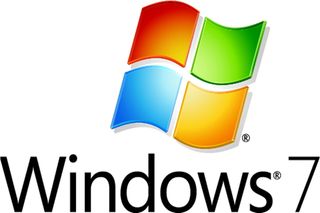Gartner: businesses should migrate to Windows 7 by 2012
Businesses should start testing the latest OS this year, the analyst firm has suggested.

Firms should migrate from Windows XP to Windows 7 within two years, according to analyst firm Gartner.
At the latest, organisations should have shown Windows XP the door by April 2014 when Microsoft stops supporting XP, Gartner advised.
Companies should test Windows 7 this year in preparation for the migration, the analyst firm added.
By 2012, new versions of many applications will not be able to be supported by XP, Gartner warned.
"In various Gartner polls and surveys, 80 per cent of respondents report skipping Windows Vista. With Windows XP getting older and Windows 8 nowhere in sight, organisations need to be planning their migrations to Windows 7," said Michael Silver, vice president at Gartner, in a statement.
"Windows 7 has been getting positive reviews, and many clients report that they have plans to start their production deployments, but there are some that are still undecided about when to start and how quickly to do the migration," Silver added.
Migration strategies
Get the ITPro. daily newsletter
Receive our latest news, industry updates, featured resources and more. Sign up today to receive our FREE report on AI cyber crime & security - newly updated for 2024.
Gartner has recommended a number of ways to migrate from XP to Windows 7.
The first is simply to deploy Windows 7 on the chosen machines in one fell swoop.
Alternatively, businesses could also opt for what Gartner called an "attrition" strategy, in which firms would identify a timescale for migration and gradually move over. Gartner warned, however, that given the standard PC refresh rate, this could take longer than firms may hope.
Most firms will need 12 to 18 months for planning, testing and piloting, leaving them with little time to reach its suggested initial deadline, according to Gartner.
IT PRO spoke to Silver about the difficulties involved in migration. "Most organisations need several hours to build a Windows 7 PC or upgrade an existing PC to Windows 7. Less than five per cent of organisations can do a zero or very light touch deployment, meaning that most organisations need to have a technician spending time on each PC," he said.
"Improving their deployment techniques and increasing the number of applications they can deliver through their software distribution system is essential to reducing the amount of technician time needed and could reduce the time to provision each PC," he added.
According to Silver, most firms rely on Windows to run more than 60 per cent of their applications. He suggested that, in the majority of cases, businesses will not necessarily save money by switching to another OS. "If they need to give the users access to Windows applications through terminal services or virtualisation, it may cost them more," Silver said.
He added: "Organisations that want more choice need to make a concerted effort to reduce their dependence on Windows as they go through normal application replacement exercises. Spending money to replace Windows applications for the sake of having more flexibility may not result in a positive return on investment."
Read on for 10 reasons to make the move to Windows 7.
Tom Brewster is currently an associate editor at Forbes and an award-winning journalist who covers cyber security, surveillance, and privacy. Starting his career at ITPro as a staff writer and working up to a senior staff writer role, Tom has been covering the tech industry for more than ten years and is considered one of the leading journalists in his specialism.
He is a proud alum of the University of Sheffield where he secured an undergraduate degree in English Literature before undertaking a certification from General Assembly in web development.
Most Popular






